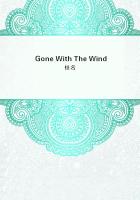Then we are further told that in all economic questions "two processes, that of production and that of distribution, can be distinguished". Also that J. B. Say, notorious for his superficiality, mentioned in addition a third process, that of consumption, but that he was unable to say anything sensible about it, any more than his successors {7-8} and that exchange or circulation is, however, only a department of production, which comprises all the operations required for the products to reach the ultimate consumer, the consumer proper {11-12}.
By confounding the two essentially different, though also mutually dependent, processes of production and circulation, and unblushingly asserting that the avoidance of this confusion can only "give rise to confusion", Herr Dühring merely shows that he either does not know or does not understand the colossal development which precisely circulation has undergone during the last fifty years, as indeed is further borne out by the rest of his book. But this is not all. After just lumping together production and exchange into one, as simply production, he puts distribution alongside production, as a second, wholly external process, which has nothing whatever to do with the first. Now we have seen that distribution, in its decisive features, is always the necessary result of the production and exchange relations of a particular society, as well as of the historical conditions in which this society arose; so much so that when we know these relations and conditions we can confidently infer the mode of distribution which prevails in this society. But we see also that if Herr Dühring does not want to be unfaithful to the principles "established" by him in his conceptions of morality, law and history, he is compelled to deny this elementary economic fact, especially if he is to smuggle his indispensable two men into economics.
And once distribution has been happily freed of all connection with production and exchange, this great event can come to pass.
Let us first recall how Herr Dühring developed his argument in the field of morality and law. He started originally with one man, and he said:
"One man conceived as being alone, or, what is in effect the same, out of all connection with other men, can have no obligations; for such a man there can be no question of what he ought , but only of what he wants, to do" {D. Ph. 199}.
But what is this man, conceived as being alone and without obligations, but the fateful "primordial Jew Adam" {110} in paradise, where he is without sin simply because there is no possibility for him to commit any? -- However, even this Adam of the philosophy of reality is destined to fall into sin.
Alongside this Adam there suddenly appears -- not, it is true, an Eve with rippling tresses, but a second Adam. And instantly Adam acquires obligations and -- breaks them. Instead of treating his brother as having equal rights and clasping him to his breast, he subjects him to his domination, he makes a slave of him -- and it is the consequences of this first sin, the original sin of the enslavement of man, from which the world has suffered through the whole course of history down to the present day -- which is precisely what makes Herr Dühring think world history is not worth a farthing.
Incidentally, Herr Dühring considered that he had brought the "negation of the negation" sufficiently into contempt by characterising it as a copy of the old fable of original sin and redemption {see D. K.
G. 504} -- but what are we to say of his latest version of the same story?
(for, in due time, we shall, to use an expression of the reptile press, [67] "get down to brass tacks" on redemption as well). All we can say is that we prefer the old Semitic tribal legend, according to which it was worth while for the man and woman to abandon the state of innocence, and that to Herr Dühring will be left the uncontested glory of having constructed his original sin with two men.
Let us now see how he translates this original sin into economic terms:
"We can get an appropriate cogitative scheme for the idea of production from the conception of a Robinson Crusoe who is facing nature alone with his own resources and has not to share with anyone else... Equally appropriate to illustrate what is most essential in the idea of distribution is the cogitative scheme of two persons, who combine their economic forces and must evidently come to a mutual understanding in some form as to their respective shares. In fact nothing more than this ****** dualism is required to enable us accurately to portray some of the most important relations of distribution and to study their laws embryonically in their logical necessity... Co-operative working on an equal footing is here just as conceivable as the combination of forces through the complete subjection of one party, who is then compelled to render economic service as a slave or as a mere tool and is maintained also only as a tool... Between the state of equality and that of nullity on the one part and of omnipotence and solely-active participation on the other, there is a range of stages which the events of world history have filled in in rich variety. A universal survey of the various institutions of justice and injustice throughout history is here an essential presupposition" {D. C. 9-10} ....
and in conclusion the whole question of distribution is transformed into an "economic right of distribution" {10}.
Now at last Herr Dühring has firm ground under his feet again. Arm in arm with his two men he can issue his challenge to his age. But behind this trinity stands yet another, an unnamed man.















